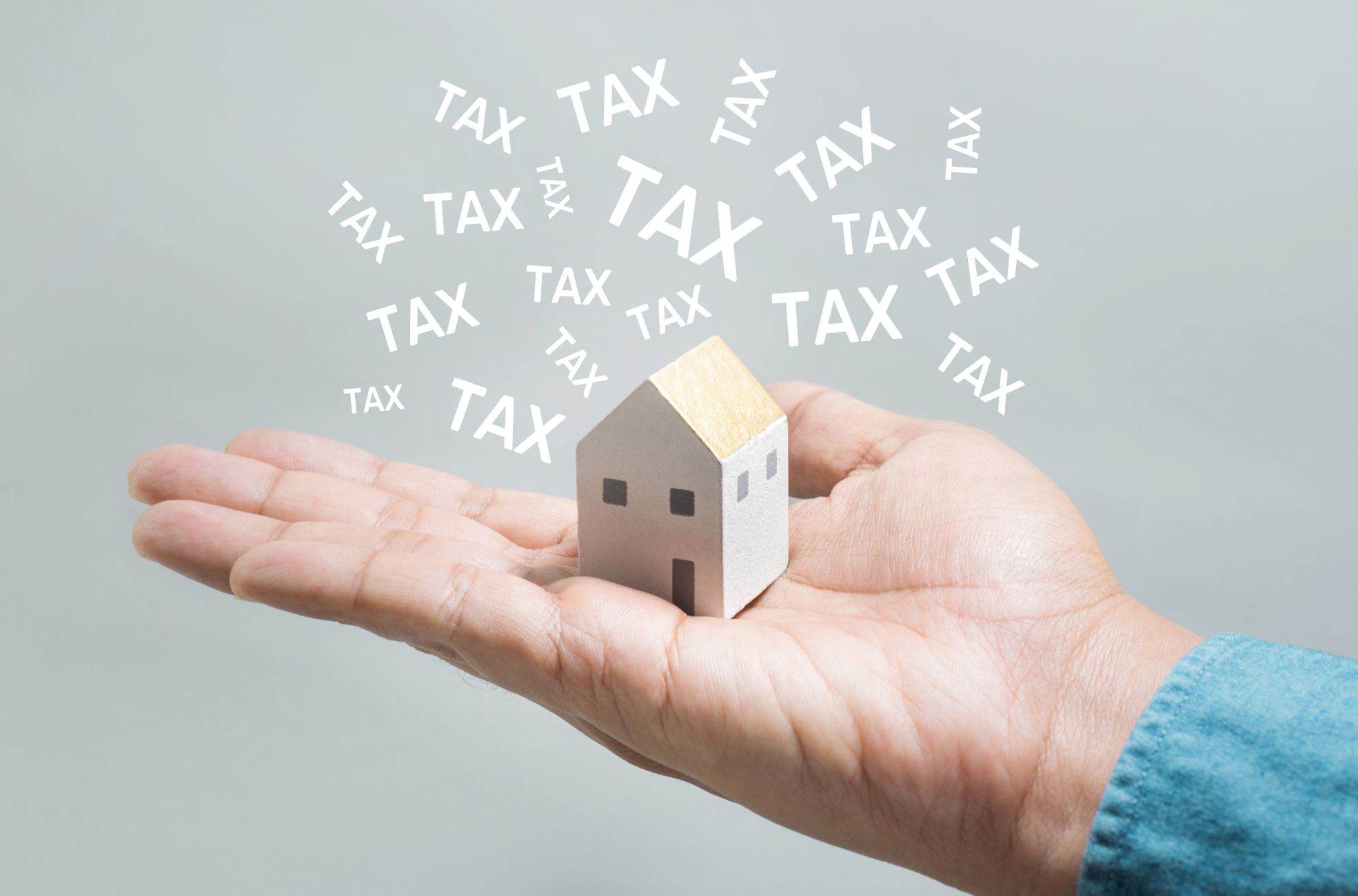Do you want to own property but don’t want the added burden of annual property taxes? Well, we have compiled a list of all the countries where you can own land but don’t have to pay property taxes.
Each of these nations has its own set of rules and benefits that make owning land more accessible and financially attractive. Whether you’re an investor looking for a tax-friendly locale or simply seeking a peaceful retreat without the overhead of property tax, these no-tax destinations could provide the perfect solution.
Did you know that if you buy property in Dominica or Malta, you will be granted citizenship and won’t have to pay any annual property taxes?
What Are Property Taxes?
Property taxes are charged on property you or legal entities own, including both the land and any structures on it. You can pay these taxes every year or once, like when you inherit or sell property.
Local governments rely on the money from property taxes to fund public services and infrastructure, such as schools, roads, police, and fire departments. How much they depend on this revenue can vary a lot, reflecting the different ways governments are set up and how they manage their finances.
Oceania Countries With No Property Tax
Vanuatu
Vanuatu, an archipelago of 83 islands, offers a tax environment that benefits property owners. This Pacific nation exempts residents from several common taxes. Landowners will pay no income, inheritance, capital gains, or property tax.
While property tax is non-existent in Vanuatu, taxes on transactions and rental income are in place. Purchasing, selling, or leasing property incurs a tax ranging from 2 to 12%. Specifically, rental income is taxed at 12.5 % and charged semi-annually on amounts exceeding approximately $1,800.
This tax applies only if rental income surpasses this limit within six months. The same rate is imposed on companies leasing properties in Vanuatu. The nation also values privacy, safeguarding companies’ financial records and their owners’ personal data.
Vanuatu has signed Tax Information Exchange Agreements (TIEAs) with various countries but has yet to enter into Double Taxation Conventions (DTCs) with most nations, ensuring that many income sources and transactions remain untaxed. Additionally, Vanuatu provides a rapid citizenship route through its investment program, which can be completed in roughly two months. Vanuatu citizenship by investment also grants you visa-free access to 130 countries.
Learn about the Vanuatu Citizenship Program here.
Fiji
Fiji, renowned for its stunning landscapes and friendly atmosphere, also offers a unique advantage for property ownership due to the absence of federal property taxes. Governed by the Land Transfer Act, the country’s land transactions require non-residents to obtain consent from the Minister of Lands under specific conditions. Since November 2014, regulations have restricted non-residents from acquiring freehold or State lease land within municipal boundaries for residential purposes.
Moreover, if non-residents purchase vacant land, they must construct a residential dwelling valued at a minimum of USD 114,000 within two years. This policy underscores Fiji’s commitment to development and growth. Investment Fiji, the government’s agency, oversees foreign investment, ensuring it aligns with the country’s development goals. While Fiji has double taxation agreements with several countries, it doesn’t have one with the United States.
While federal property taxes are non-existent, local governments in Fiji may impose property rates within their jurisdictions. Additionally, Fiji does not levy estate, inheritance, or gift taxes. The country’s judiciary upholds contractual rights and assures investors. Still, tax clearances from the Fiji Revenue and Customs Service are required for repatriating profits and dividends, which are a consideration for potential investors.
The Cook Islands
The Cook Islands, another idyllic location in the South Pacific, is notable for its lack of a property tax, positioning it as an attractive destination for real estate investment. The islands do not tax individual income, though businesses and non-residents are subject to taxes on certain income types.
This tax structure is particularly advantageous for those looking to invest in property without the continuous financial obligation of property tax. The absence of property tax in the Cook Islands and its breathtaking landscapes position it as a preferred location for property acquisition. The islands’ tax regulations contribute to a favorable investment environment, particularly for those desiring to enjoy their property without the concern of significant tax liabilities.
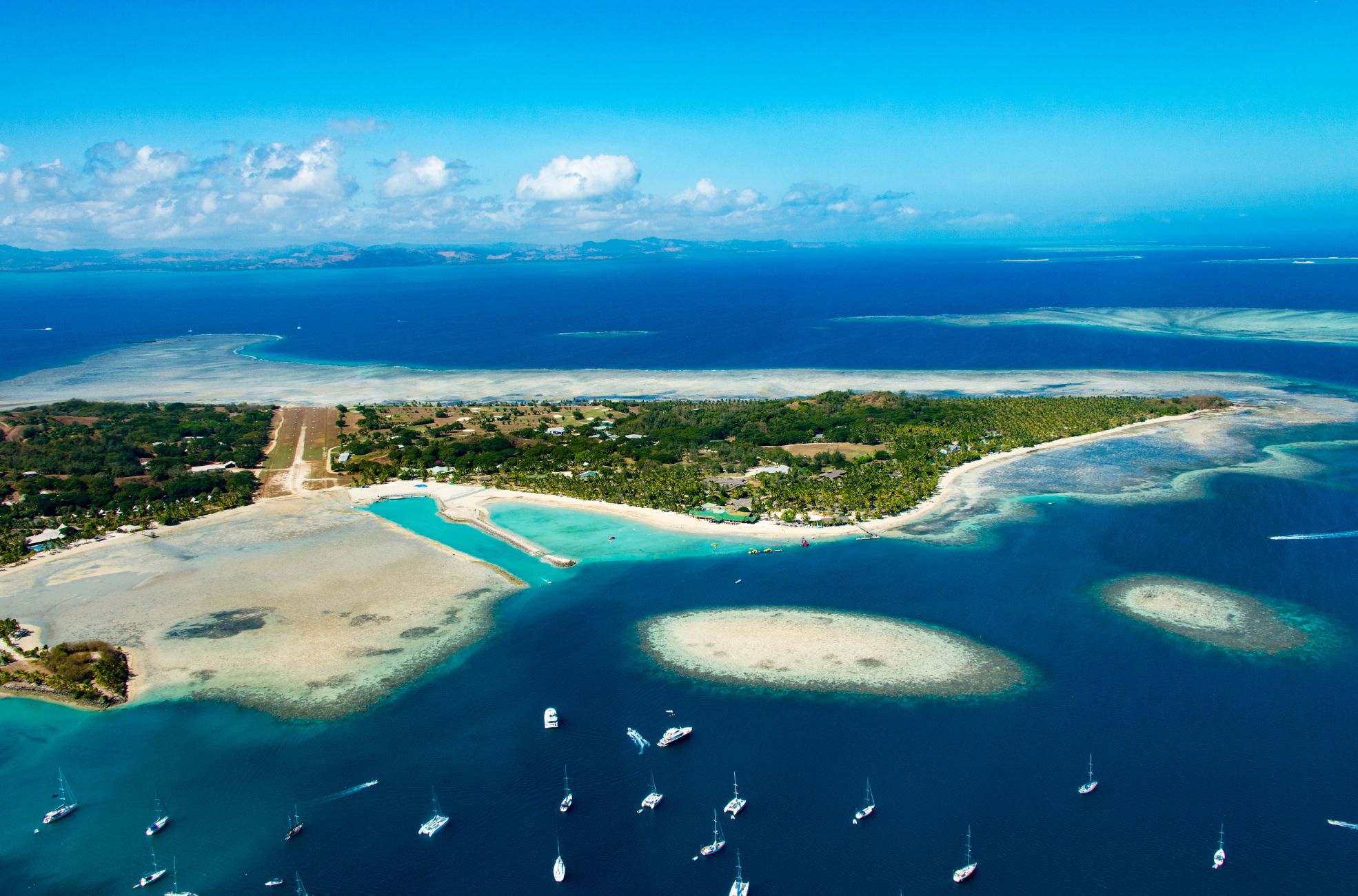
European Countries With No Property Tax
Malta
Malta is an attractive destination for property investment, primarily due to its lack of an annual property tax. This Mediterranean island nation only requires a one-time stamp duty during the real estate transfer process. Typically, this stamp duty amounts to 5% of the property’s value.
However, for Maltese and E.U. citizens who have continuously resided in Malta for five years, a reduced stamp duty rate of 3.5% is applied to the first $165,000 of the property purchase price. This exemption from ongoing property tax makes Malta particularly appealing for long-term property investors and those seeking a more cost-effective real estate ownership experience. To look into the rest of Malta’s tax advantages, read our blog on it here.
Learn about the Maltese Citizenship Program here.
Croatia
Croatia does not impose an annual property tax. However, a real estate transfer tax is required when a property changes hands at a rate of 5%. Owners of holiday homes are subject to a tax based on the property’s size, with rates between USD 0.65 and USD 2 per square meter. Capital gains tax applies to properties sold within three years of purchase and to rental income, except when renting to tourists, which incurs a flat tax rate determined by the tax administration.
Georgia
Moving east to Georgia, we find a country offering a tax-friendly haven for property owners. No property tax on individuals with property-related income under $15,000 annually exists. When income from the property exceeds $14,800, a nominal tax, usually not surpassing 1% of the property value, is triggered. This graciously low threshold is particularly advantageous for those with modest earnings from their real estate investments.
Monaco
Monaco offers the advantage of no annual property tax. Rental properties are subject to a 1% tax on the annual rent, plus applicable charges. While no wealth tax exists, transferring real estate incurs registration duties and notary fees.
Liechtenstein
Liechtenstein does not levy an annual property tax but does tax capital gains from real estate sales. There is a wealth tax on assets but no inheritance, estate, or gift taxes. A 3.5% tax is applied when assets are transferred to a non-taxable entity or removed from the wealth tax base.
Andorra
Another European country without yearly property taxes is Andorra. Nestled between France and Spain, this small nation does not levy annual taxes on property ownership. However, it does impose a transfer tax on the sale of real property, generally between 2.5% and 4%, depending on the location and type of property.
Isle of Man
Located in the Irish Sea, the Isle of Man offers a tax regime with no general annual property tax. Nonetheless, rates are levied on properties to fund local services, and these can vary depending on the parish and type of property.
Sark
Sark, one of the Channel Islands, also does not impose a conventional annual property tax. This small island community charges a personal tax, which includes a component based on property ownership. Still, this personal tax is capped, ensuring that overall tax liability remains low compared to other jurisdictions.
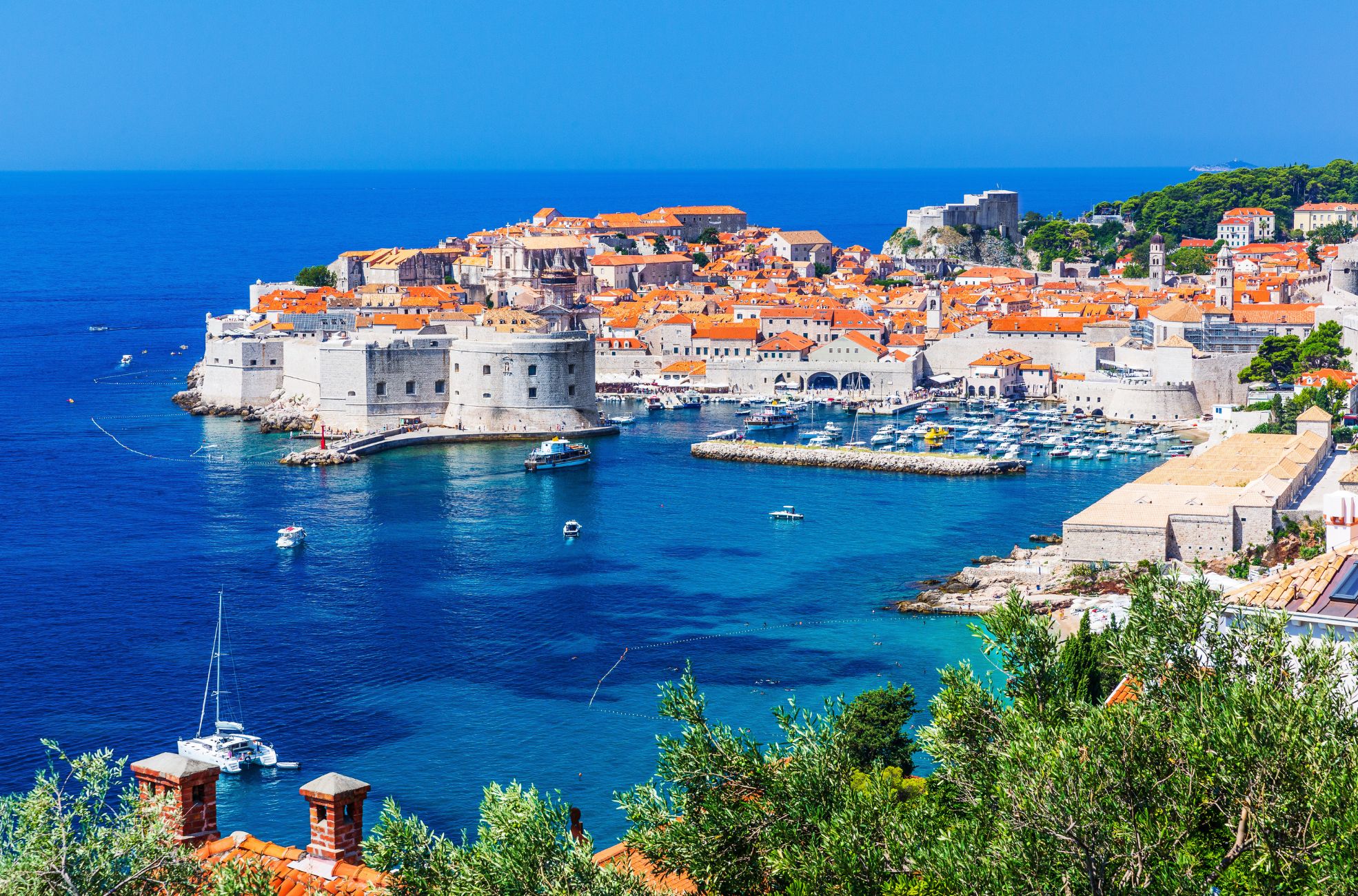
Caribbean Countries With No Property Tax
Grenada
Grenada is ranked as one of the best and cheapest Caribbean islands to live in. While Grenada does not rank among countries completely free of property taxes, it offers notable exemptions that might interest potential property owners and investors. In Grenada, property taxes apply to both owners and occupiers, including those with buildings on extended family land.
However, the country provides significant tax relief: owner-occupied properties benefit from an exemption on the first 100,000 USD of the building’s value. This exemption serves as an incentive for property ownership and investment within the country.
Additionally, agricultural lands in Grenada are exempt from property tax, a policy aimed at supporting and encouraging the agricultural sector. While these exemptions potentially make property ownership in Grenada more attractive, it’s important to note that the country is not entirely tax-free. Prospective property owners should consider Grenada for its partial tax relief rather than the complete absence of property taxes.
Learn about the Grenada Citizenship Program here.
Dominica
In Dominica, the property tax structure offers a significant advantage to property owners, as the country does not impose an annual property tax on a national level. This policy can particularly appeal to those looking for real estate investment opportunities in a tax-friendly environment.
However, it’s important to note that a municipal tax does apply in certain urban areas. For instance, in towns like Roseau and Canefield, property owners are subject to a municipal tax at a rate of 1.25% of the property’s assessed value. This tax is specific to these municipalities and contributes to local infrastructure and services.
Additionally, for property owners who lease their properties, Dominica imposes a state duty, which is approximately 1% per year on the value of the lease agreement. This duty is an important consideration for investors in the rental market.
Dominica’s overall approach to property taxation, with its lack of an annual national property tax coupled with specific municipal and leasing duties, offers a mixed scenario for potential property buyers. This structure makes Dominica an attractive option for certain types of property investments, particularly for those looking to own property outside the municipal areas where the tax rate is more favorable.
Learn about the Dominican Citizenship Program here.
Cayman Islands
The Cayman Islands are a tax-neutral haven. Property owners here are exempt from annual property taxes. This exemption extends to land ownership, allowing owners to hold their property indefinitely without the obligation to build or pay ongoing taxes.
Leasing property in the Cayman Islands is also free from taxation, enhancing the attractiveness of real estate investment. These policies are consistent with the islands’ broader strategy to draw investors to a tax-advantageous environment.
Turks and Caicos
Turks and Caicos do not impose an annual property tax on real estate. The policy also eliminates the need for title insurance or an alien landholder’s license for foreign nationals purchasing property. The islands offer a Permanent Residence Certificate (PRC) program with various investment thresholds for those seeking permanent residence.
The PRC program complements Turks and Caicos’ broader tax strategy, including the absence of personal or corporate income taxes, enhancing its appeal to investors and residents.
If you still can’t decide, which Caribbean island you want to buy property in, see our blog on The Ultimate Caribbean Citizenship by Investment Comparison.
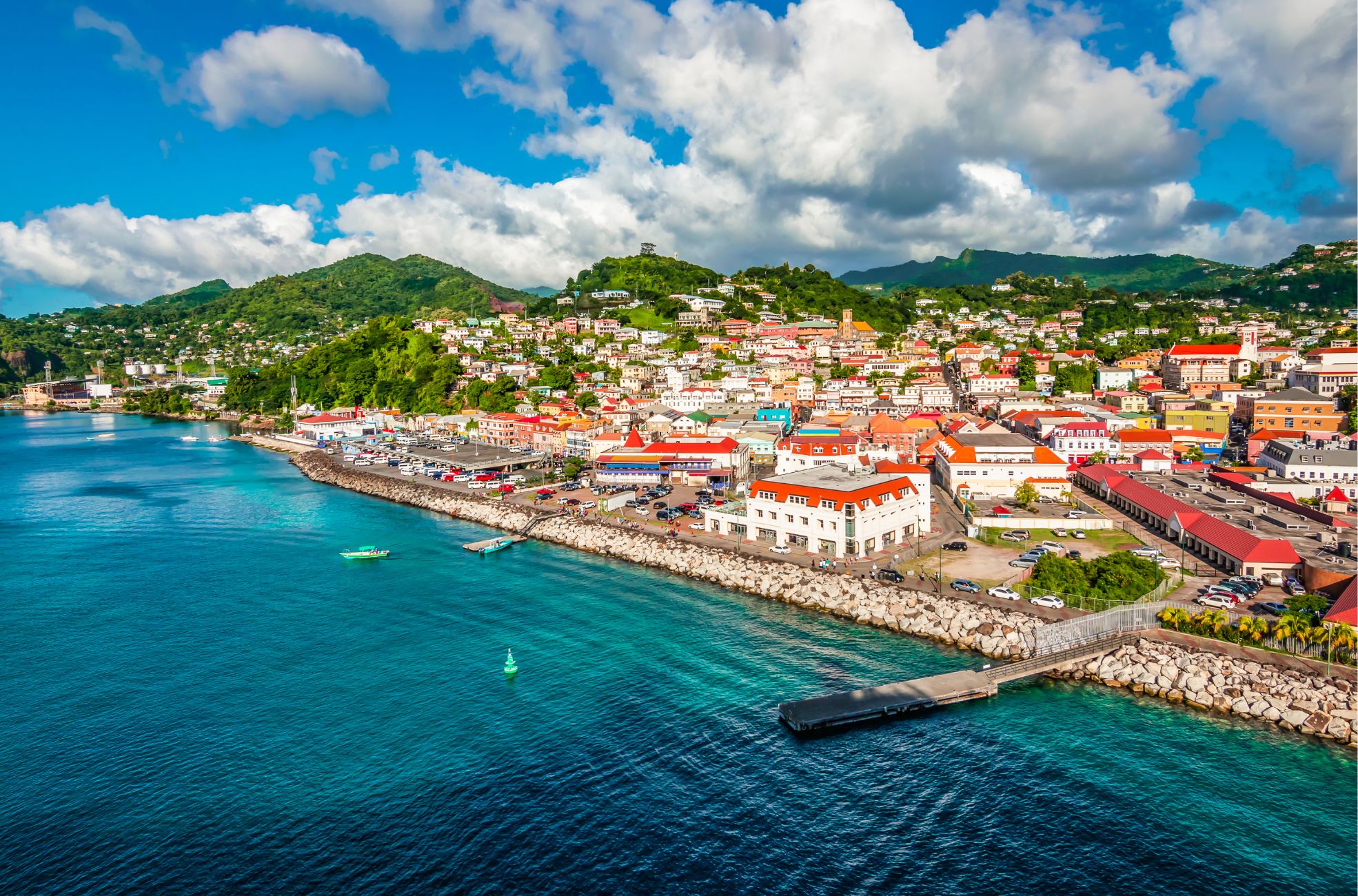
Asian And Middle Eastern Countries With No Property Tax
The UAE
In the UAE, the absence of annual property taxes across all emirates stands out as a major benefit for property owners. Expatriates face different ownership regulations depending on the emirate: Abu Dhabi allows ownership of floors and apartments but not land, Dubai offers greater freedom for foreign ownership in designated areas, and Sharjah grants usufruct rights for up to 100 years instead of outright ownership. This lack of property taxes, coupled with the varied ownership rights in different emirates, makes the UAE an appealing choice for property investment.
Learn about the UAE Golden Visa Program here.
Saudi Arabia
Saudi Arabia does not levy a general property tax. However, the government has introduced the white land tax (WLT), targeting urban vacant plots earmarked for residential or commercial use. Owners of such lands are required to pay 2.5% of the land’s value annually, a measure designed to encourage development and address the scarcity of developed land.
Bahrain
Bahrain’s tax landscape is unique. While there is no general property tax, the country adheres to the Common Excise Tax Agreement of the Gulf Cooperation Council (GCC), which has been effective since February 1, 2017. Real estate transactions are subject to a stamp duty of 2% upon transfer or registration. Additionally, a 10% municipality tax is levied on rental incomes from properties leased to expatriates.
Oman
Oman does not impose a property tax on real estate ownership. However, certain real estate activities, such as transactions involving developed land, are subject to a 5% VAT. The Oman Tax Authority guides VAT exemptions, which include the supply of undeveloped land, the resale of residential property, and the rental of residential property.
Kuwait
Kuwait is another country in the region without a property tax. The country has considered implementing a VAT at a standard rate of 5% as part of the GCC VAT framework agreement, which could affect the overall costs associated with property development.
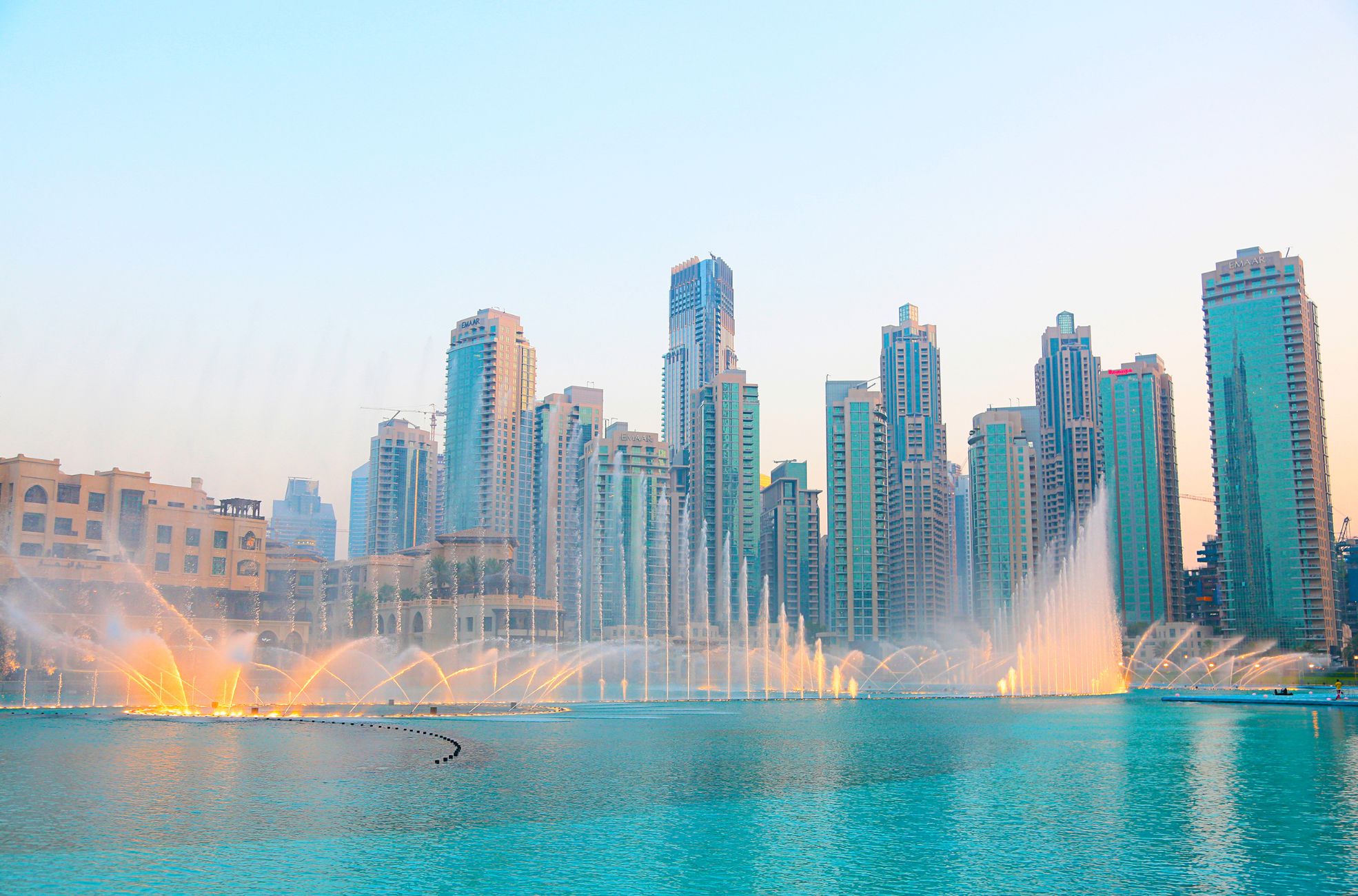
How Property Taxes Work In Different Areas Around The Globe
How property taxes are applied and structured varies around the world. Property taxes are a big part of how some local governments get their money; in others, they’re less important. For example, property taxes account for a significant chunk of private capital stock in the United States, at 1.72%. But in Luxembourg, they’re just 0.05% of private capital stock, showing they are less reliant on this kind of tax.
Different countries have their own ways of handling property taxes. Estonia, for example, only taxes the land itself, not any buildings or improvements on it, which many see as a smart approach. In the United States, Texas doesn’t have a state property tax, but you’ll still pay local property taxes.
In Europe, property taxes work differently from one country to the next. Liechtenstein and Malta stand out because they don’t have any regular property taxes. These countries might be attractive if you want to own property without ongoing tax duties.
Property tax encompasses various taxes related to property ownership, usage, and transfer, including taxes on immovable property, net wealth, inheritance, gifts, and financial transactions. The structure and enforcement of these taxes can significantly influence decisions for property owners and investors, affecting where to purchase and maintain properties.
Explore With Confidence
Navigating the global landscape for property ownership without the burden of annual property taxes can open up a world of opportunities. Whether it’s soaking up the sun on a Caribbean island, living amidst the rich cultures of Europe, or capitalizing on the growth in the Asia-Pacific region, there’s a slice of paradise to suit every preference and investment strategy.
It is also a great idea to align your property purchase with a Golden Visa Scheme so that you can hit two birds with one stone. Vanuatu, Malta, and Dominica all provide citizenship by investment programs and offer no annual property taxes.
If you’re interested in buying property in these tax-free countries while securing residency or citizenship, contact us at Next Generation Equity for a free consultation.
FAQ’s
Which Countries Do Not Have Property Taxes?
Countries that don’t have property taxes include Vanuatu, Fiji, the Cook Islands, Croatia, Georgia (for individuals with property-related income under 15,000 USD annually), Monaco, Liechtenstein, Andorra, the Isle of Man, Sark, the Cayman Islands, Turks and Caicos, the UAE, Saudi Arabia (except for the white land tax), Bahrain, Oman, and Kuwait.
Which Caribbean Islands Don’t Have Property Tax?
In the Caribbean, the Cayman Islands and Turks and Caicos Islands do not impose property taxes, attracting real estate investors. These islands support their economies through other revenue streams, such as financial services and tourism.
What Should Potential Property Investors Consider When Looking at Tax-Free Jurisdictions?
When investing in tax-free jurisdictions, investors must consider additional costs beyond the lack of annual property tax. Key factors include transaction fees, rental income taxes, specific development requirements, and conditions for foreign investors. Understanding the overall tax landscape and any international agreements affecting taxation is important. Investors should evaluate the political and economic stability of the region, the legal procedures for property transactions, and any development plans that could impact property values. Thorough due diligence and expert advice are essential for a successful investment.
Why are Property Taxes Important for Local Governments?
Property taxes play a crucial role in local government funding. They are a primary source of revenue for many municipalities and are used to finance key public services and infrastructure. This includes funding for schools, roads, police and fire departments, and other community amenities. The reliance on property taxes can vary significantly depending on the local government’s structure and financial management strategies. In regions where property taxes form a substantial part of the revenue, they directly impact the quality and availability of these essential services.
